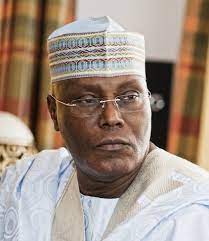FIJ
On Tuesday, Chukwuebuka Enekwechi, a Nigerian athlete and Shot put medal hopeful at the ongoing Olympics in Tokyo, shared a video of himself washing his competition jersey for the next outing. In his caption of the video, Enekwechi hinted at the welfare of Nigerian athletes at the games.
“When you made the Olympic finals, but you only have one jersey,” he wrote.
Enekwechi became the toast of many Nigerians following his Tuesday 21.16m throw, which qualified him for the final of the men’s Shot put competition slated for Thursday, August 5.
Although his video has set social media ablaze and spurred conversations on how much importance Nigeria attached to the welfare of its representatives, it was not the first embarrassing moment for Nigeria since the start of the games.
10 NIGERIAN ATHLETES BANNED FROM THE GAMES
Ten Nigerian track and field athletes were, on Wednesday, July 28, disqualified from participating in the Olympic games over the failure of Nigerian sports officials to screen the athletes for doping before the competition.
According to the Athletics Integrity Unit (AIU), the failure of Nigeria to subject its athletes to at least three out-of-competition tests, including urine and blood tests, three weeks apart in the 10 months leading to the event, was a breach of an important rule of the games.
NIGERIAN ATHLETES PROTEST IN TOKYO
On Wednesday, July 26, the 10 Nigerian athletes affected took to the streets of Tokyo to protest the negligence of Nigerian sports authorities which had resulted in their disqualification.
The athletes became infuriated when the sports ministry absolved itself of any wrongdoing and categorized them as “alternate and foreign student-athletes whose tests did not meet with sample collection and analysis standards”.
BLESSING OKAGBARE’S SUSPENSION
Hours after the suspension of the 10 athletes, news broke that Blessing Okagbare, one of Nigeria’s brightest chances of winning a medal in the women’s 100 metres event, had also been suspended from the Tokyo games.
In its statement, the AIU revealed that Okagbare had failed an out-of-competition test taken on July 19. She was said to have tested positive for a human growth hormone that is on the World Anti-Doping Agency’s list of prohibited non-specified substances.
This suspension did not go down well with Okagbare, who had won her heat race a day prior. Consequently, she lashed out at the officials of the Nigeria Ministry of Sports and the Athletics Federation of Nigeria for failing in their duties as administrators.
“If you do not know the sport, not passionate about it/us, then you have no business there as an administrator. The sport system in Nigeria is so flawed and we athletes are always at the receiving end of the damages,” she said.
This story first appeared in FIJ


